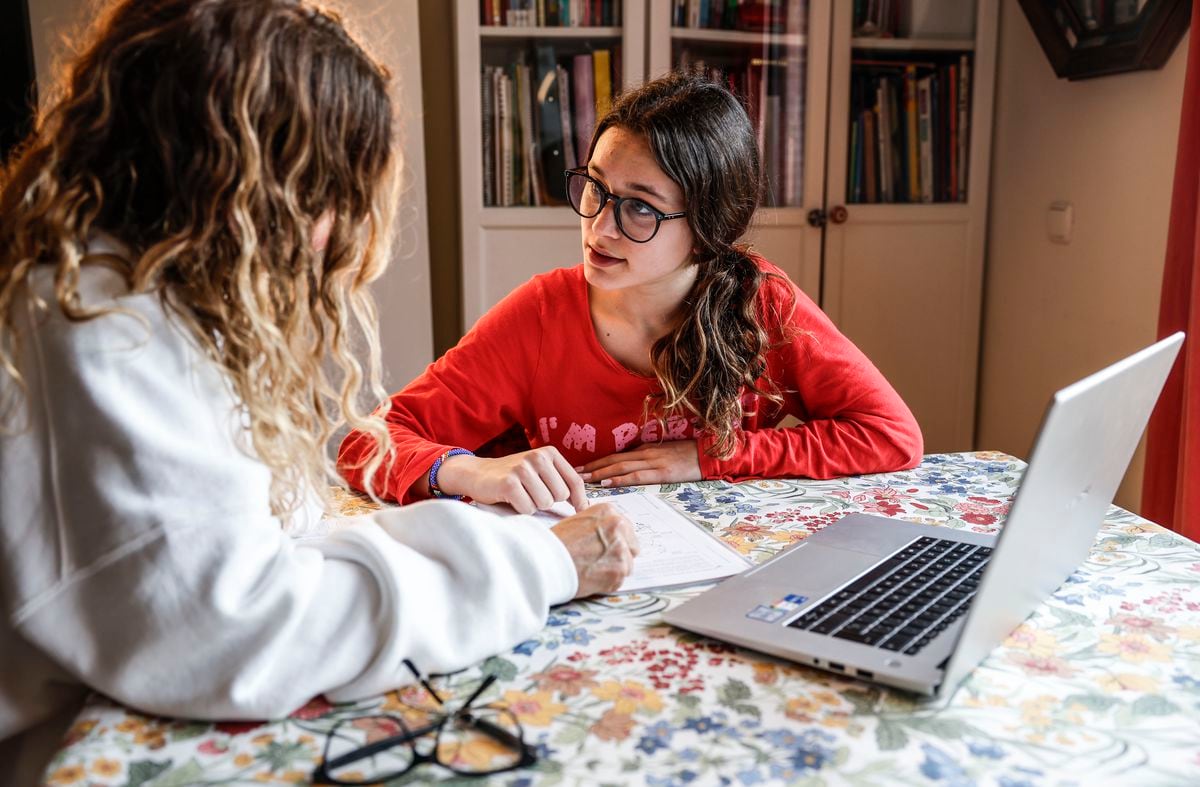Enlarge image
Young people reading (symbol): No more desire
Photo: Richard Bailey / Getty Images
Lying in bed in the evening with a flashlight and reading into the night sounds good.
That sounds like adventure, like the never-ending story, like the lucky dragon Fujur.
But this idea of the evening reading pleasure has long been a thing of the past in the lives of many young people.
Who will take a book to bed in the evening?
A special Pisa evaluation now even shows the following: Fewer and fewer schoolchildren are still enjoying reading at all.
There are only two other countries where the enjoyment of reading is falling as well as in Germany: Finland and Norway.
More and more young people only read when they have to, regardless of whether the texts are printed or can be accessed digitally.
This applies to boys and girls alike, and it doesn't matter which secondary school they attend.
Those students who enjoy reading understandably read better than everyone else who does not enjoy reading.
Pisa special evaluation: Reading in the 21st century
AreaWho did the special evaluation come from?
The international school performance study Pisa, commissioned by the Organization for Economic Cooperation and Development (OECD), records the skills of 15-year-old youngsters in reading, mathematics and the natural sciences.
In the present special evaluation, the reading skills of 15-year-old schoolchildren were considered.
When did the data come from?
The data that have now been evaluated come from 2018. The results therefore provide an overview of the situation before the pandemic.
And those who read printed books read much better than those who read books on digital devices.
According to the study, one result in particular is surprising: when schoolchildren read e-books, their reading skills are at a similar level to those who rarely or never read books.
Printed books make more sense than poorly designed multimedia books, especially for schoolchildren from unfavorable socio-economic backgrounds.
Further results at a glance:
Around a fifth of schoolchildren in Germany (21 percent) do not achieve the minimum level of reading competence, which is important for a self-determined life and for participation in society.
Only about half of all school children (49 percent) can judge whether information from the Internet can be trusted.
Girls can still read much better than boys.
You understand and remember better what is in the text.
You can better summarize information and better judge how credible sources are.
Socially disadvantaged students can read less well than those who come from socially strong families.
They also find it harder to tell if information on the Internet is skewed.
In Germany, these differences are significantly larger than the OECD average.
If schoolchildren use digital devices for longer at school, their reading performance deteriorates, especially pupils from socially disadvantaged families are affected.
Reading skills can only be promoted if teachers use digital media and devices in a targeted and meaningful way for certain learning processes.
Those who can read well are also able to make the most of digital technology.
High-performance readers use digital devices to read the news, for example, but they also like to read paper-based books.
The Reading Foundation underlines these results: According to them, schoolchildren face major challenges when they want to read digitally.
And there is a reason for that: There are more and more sources of information on the Internet.
"The use of digital devices and sources is part of the classroom and is also practiced," said the head of the Institute for Reading and Media Research at the Reading Foundation, Simone Ehmig, of the dpa news agency.
However, every pupil can only deal with these offers as well as basic skills and thus reading skills are available.
According to Ehmig, studies have shown that educationally disadvantaged and non-literate people generally have above-average problems finding, understanding and classifying digitally conveyed information.
"You are overwhelmed by the complexity of the content and the length of the texts." That affects all generations.
Almost all young people have access to digital devices and can use them.
But those who cannot read well often fail because of content that is not conveyed in videos or audios.
In addition, people with poorly developed reading skills find it particularly difficult to assess the relevance, seriousness and credibility of a "barely transparent number of sources".
In addition to the literary and philosophical canon of texts, Ehmig also calls for everyday texts to be dealt with in class - such as official reports, general terms and conditions or food information.
With material from dpa







/cloudfront-eu-central-1.images.arcpublishing.com/prisa/HVOT6FYZO5ACFKCQITMWOHPN3M.jpg)
/cloudfront-eu-central-1.images.arcpublishing.com/prisa/6N6KTXOAZVACJJXKBZX5NJNUZY.jpg)